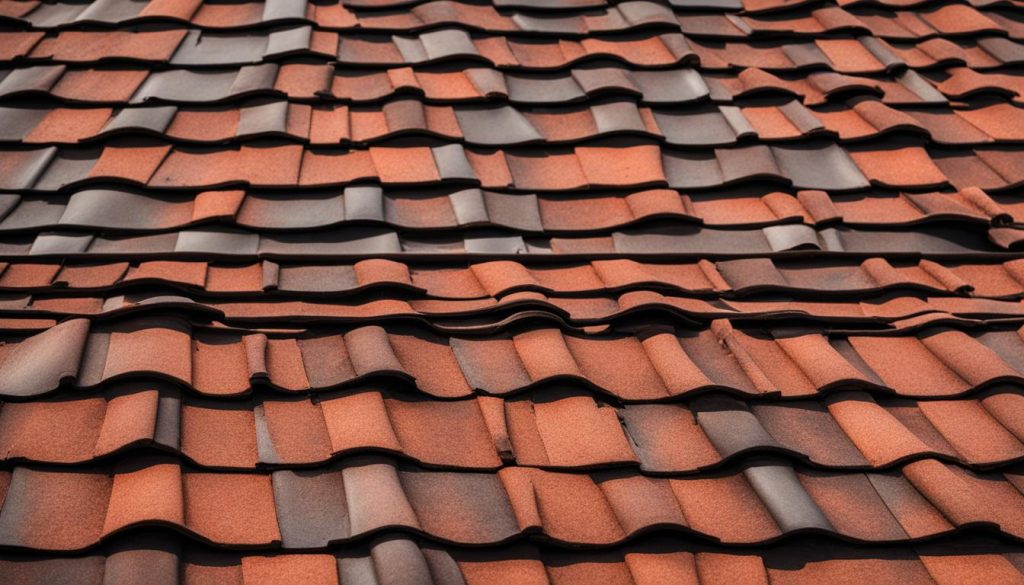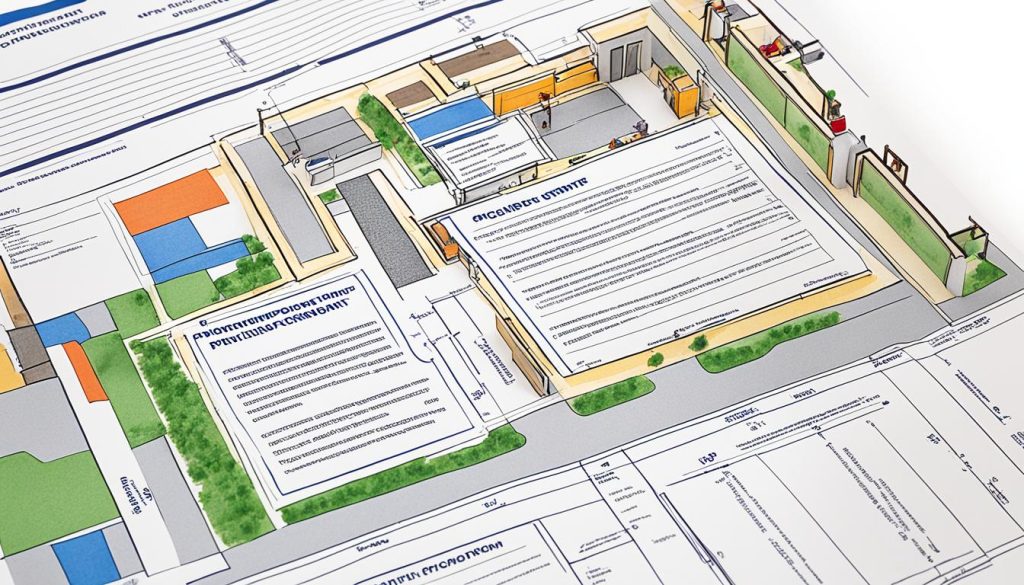Safe and sound if Explore comprehensive coverage with home insurance policies
Protecting your home and ensuring its safety and security is of utmost importance. Home insurance policies provide comprehensive coverage that safeguards your property, belongings, and finances in the event of unforeseen circumstances. Whether you own a house, condominium, or rent an apartment, having the right insurance coverage is essential for peace of mind.
When it comes to home insurance, you want to make sure you have the right protection plan in place. Comprehensive home insurance policies offer coverage for a wide range of risks, including theft, fire, natural disasters, and liability. Having this type of insurance coverage ensures that you are financially protected should any unfortunate events occur.
Insurance companies often require home insurance inspections to assess the replacement cost and potential risks associated with a property. These inspections are more common for older homes, high-value properties, or those located in disaster-prone areas. Inspections can be conducted externally or internally and cover various aspects of the home, such as the roof, exterior hazards, drainage systems, foundation, and HVAC system.
By passing a home insurance inspection, you can maintain your coverage and avoid policy cancellation or non-renewal. It’s important to be proactive in ensuring your property meets the necessary requirements and addressing any issues promptly to keep your home protected.
Key Takeaways:
- Comprehensive home insurance policies provide extensive coverage for your property and belongings.
- Insurance companies may require home insurance inspections to assess risks and replacement costs.
- Passing a home insurance inspection is crucial to maintaining coverage and avoiding policy cancellation.
- Being proactive and addressing any issues promptly helps ensure your home is adequately protected.
The Benefits and Consequences of Home Insurance Inspections
Home insurance inspections provide numerous benefits for homeowners. These inspections serve as a proactive approach to detect and address potential issues, ensuring the safety and well-being of the residents. By identifying hazards and vulnerabilities, home insurance inspections create an opportunity for homeowners to take necessary measures in order to mitigate risks, protecting both their property and loved ones. Moreover, successful home insurance inspections can also result in potential discounts on home insurance premiums, rewarding homeowners who prioritize safety.
However, failing a home insurance inspection can have significant consequences. Insurance companies may deny coverage, which could leave homeowners exposed to financial burdens in the event of property damage or loss. Additionally, insurance premiums may increase if a home insurance inspection reveals outstanding issues that compromise the property’s safety. In some cases, policy cancellation may even occur, leaving homeowners without the protection they rely on.
To ensure a successful home insurance inspection, homeowners must prioritize property maintenance. Regular upkeep and prompt attention to any maintenance issues not only improve the chances of passing an inspection but also contribute to the overall well-being of the property. By addressing potential hazards and proactively resolving concerns, homeowners can safeguard their investment and maintain the coverage they depend on.
The Benefits of Home Insurance Inspections
- Early detection and prevention of safety hazards
- Potential for discounts on home insurance premiums
- Improved overall well-being and security for homeowners
The Consequences of Failing a Home Insurance Inspection
- Denial of coverage
- Potential increase in insurance premiums
- Risk of policy cancellation
It is crucial for homeowners to recognize the importance of property maintenance and promptly address any issues that may arise. By prioritizing home insurance inspections and property upkeep, homeowners can enjoy the benefits of comprehensive coverage and peace of mind.
“Home insurance inspections not only protect your property but also offer an opportunity to enhance safety measures and potentially lower insurance costs.” – John Smith, Homeowner
Your home is your sanctuary, and maintaining adequate coverage is essential for peace of mind. By understanding the benefits and consequences of home insurance inspections, homeowners can take proactive steps to ensure their property is secure and protected.
Understanding the Impact of Roof Age on Home Insurance Coverage
When it comes to home insurance coverage, the age of your roof can make a significant difference. Older roofs are more susceptible to damage, which can lead to more frequent and severe insurance claims. Insurance companies take into account the age of the roof when determining coverage options.
Typically, insurance companies may limit or exclude coverage for roof replacement if the roof is over 20 years old. This is because older roofs are more likely to have wear and tear, making them more prone to damage from wind, hail, or other natural elements. As a result, homeowners with older roofs may face higher out-of-pocket expenses in the event of roof damage.
In addition, insurance companies may require a roof inspection before insuring a home. This inspection helps them assess the condition of the roof and determine the risk associated with it. If the inspection reveals any significant issues or deterioration, the insurance company may only provide coverage for the actual cash value of the roof, rather than the full replacement cost. This means that homeowners may not receive enough compensation to fully repair or replace their roof if it is damaged.
It is crucial for homeowners to be aware of their roof’s age and condition to ensure adequate coverage. Regular roof maintenance and prompt repairs can help extend the life of the roof and minimize the risk of damage. Additionally, some insurance companies may offer discounts or incentives for homeowners who have newer roofs or who have taken steps to safeguard their roofs against potential damage.
| Roof Age | Insurance Coverage |
|---|---|
| Under 10 years | Full coverage with potential discounts |
| 10-20 years | Limited coverage with potential exclusions |
| Over 20 years | Limited or excluded coverage for roof replacement |
By staying proactive about their roof’s maintenance and staying informed about insurance policies, homeowners can ensure they have the necessary coverage in case of roof damage. Consulting with insurance agents and conducting regular roof inspections can provide homeowners with valuable insights and help them make informed decisions regarding their home insurance coverage.

Having a clear understanding of how roof age impacts home insurance coverage is crucial for homeowners. With proper maintenance, regular inspections, and awareness of policy limitations, homeowners can protect their homes and finances from the costly consequences of roof damage.
The Importance of Permits for Home Improvement Projects
Undertaking home improvement projects is an exciting way to enhance your living space and increase the value of your home. Whether it’s a kitchen remodel, a bathroom renovation, or adding a new room, these projects require careful planning and execution. However, many homeowners overlook a crucial step in the process: obtaining permits.
Why are permits important?
Permits are essential for ensuring that your home improvement projects comply with safety regulations and building codes established by your local government. They serve as proof that the construction or renovation work meets the required standards, safeguarding the structural integrity and safety of your property.
When you obtain the necessary permits, you signal your commitment to maintaining the highest possible standards for your project, giving you peace of mind and protecting your investment.
Consequences of unpermitted work
Skipping the step of obtaining permits can have serious consequences for your home improvement projects and insurance coverage. Insurance companies often consider unpermitted work as negligence, leaving you exposed to potential problems in the event of an accident or damage.
If you carry out unpermitted work and subsequently file an insurance claim related to that work, your claim may be denied. This denial can result in significant financial losses, leaving you responsible for covering the costs out of your own pocket.
Moreover, unpermitted work can also lead to the loss of insurance coverage altogether. Insurance companies may view unpermitted work as a breach of your policy’s terms and conditions, potentially resulting in policy cancellation or non-renewal.
The solution: Secure the necessary permits
Protecting your property and insurance coverage requires you to take the necessary steps to ensure your home improvement projects are properly permitted. Here’s how you can do it:
- Research: Understand the permit requirements and processes specific to your local area. Contact your municipality or visit their website to obtain accurate information.
- Consult professionals: Seek guidance from licensed contractors, architects, or engineers who can help you navigate the permit application process and ensure compliance with local regulations.
- Submit applications: Complete the permit application forms and submit them to the appropriate municipal department. Provide all necessary documents, such as project plans, specifications, and supporting documentation.
- Pay fees: Pay the required permit fees, which can vary depending on the scope and scale of your project.
- Wait for approval: Once you’ve submitted your application, patiently await the approval or request for revisions from the permit department.
- Commence work: Once you receive the necessary permits, you can proceed with your home improvement project, confident that you have met all legal requirements.
By securing the necessary permits for your home improvement projects, you not only comply with local regulations but also protect your property and insurance coverage.
Infographic: The Permits Process Explained

| Benefits of Obtaining Permits | Consequences of Unpermitted Work |
|---|---|
|
|
Conclusion
Homeowners insurance is an essential investment for protecting your property and providing peace of mind. By understanding the importance of inspections, proper maintenance, and obtaining permits for home improvement projects, you can ensure that you have the necessary coverage in case of damage or loss.
Inspections play a crucial role in assessing the risks and replacement cost of your home, especially for older homes, high-value properties, or those located in disaster-prone areas. Passing a home insurance inspection is vital to maintain coverage, as failing to do so can result in policy cancellation or non-renewal.
Proper maintenance and prompt addressing of any issues are key to preserving the integrity of your property. By being proactive in roof maintenance and understanding the impact of roof age on your insurance coverage, you can ensure you have the appropriate protection. Additionally, obtaining permits for your home improvement projects is crucial to avoid issues with insurance coverage and potential claim denials related to unpermitted work.
To make informed decisions regarding your home insurance policies, it is essential to work with reputable insurance companies and seek guidance from insurance agents. They can help you navigate the complexities of homeowners insurance and ensure that you have the adequate coverage you need to safeguard your most valuable asset.
FAQ
What is the purpose of a home insurance inspection?
Home insurance inspections are conducted by insurance companies to assess the replacement cost and risks of a property. They help determine the coverage and premiums for homeowners insurance policies.
What aspects of the home are covered in an insurance inspection?
Insurance inspections cover various aspects of the home, including the roof, exterior hazards, drainage systems, foundation, HVAC system, and more. Inspectors evaluate the condition and safety of these elements.
What happens if I fail a home insurance inspection?
Failing a home insurance inspection can result in consequences such as policy cancellation, non-renewal, higher premiums, or denial of coverage. It is important to address any issues promptly and ensure a successful inspection.
How does the age of a roof affect home insurance coverage?
The age of a roof can impact home insurance coverage. Insurance companies may limit or exclude coverage for roof replacement if the roof is over 20 years old. It is important for homeowners to be aware of their roof’s age and condition for adequate coverage.
What are the consequences of unpermitted work on home insurance coverage?
Unpermitted work on home improvement projects can have significant consequences for insurance coverage. Insurance companies often consider unpermitted work as negligence and may deny claims related to that work. Homeowners should obtain the necessary permits to protect their property and insurance coverage.
